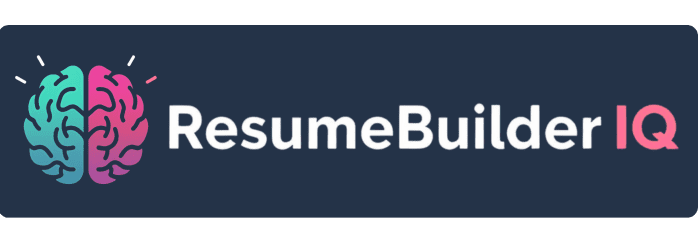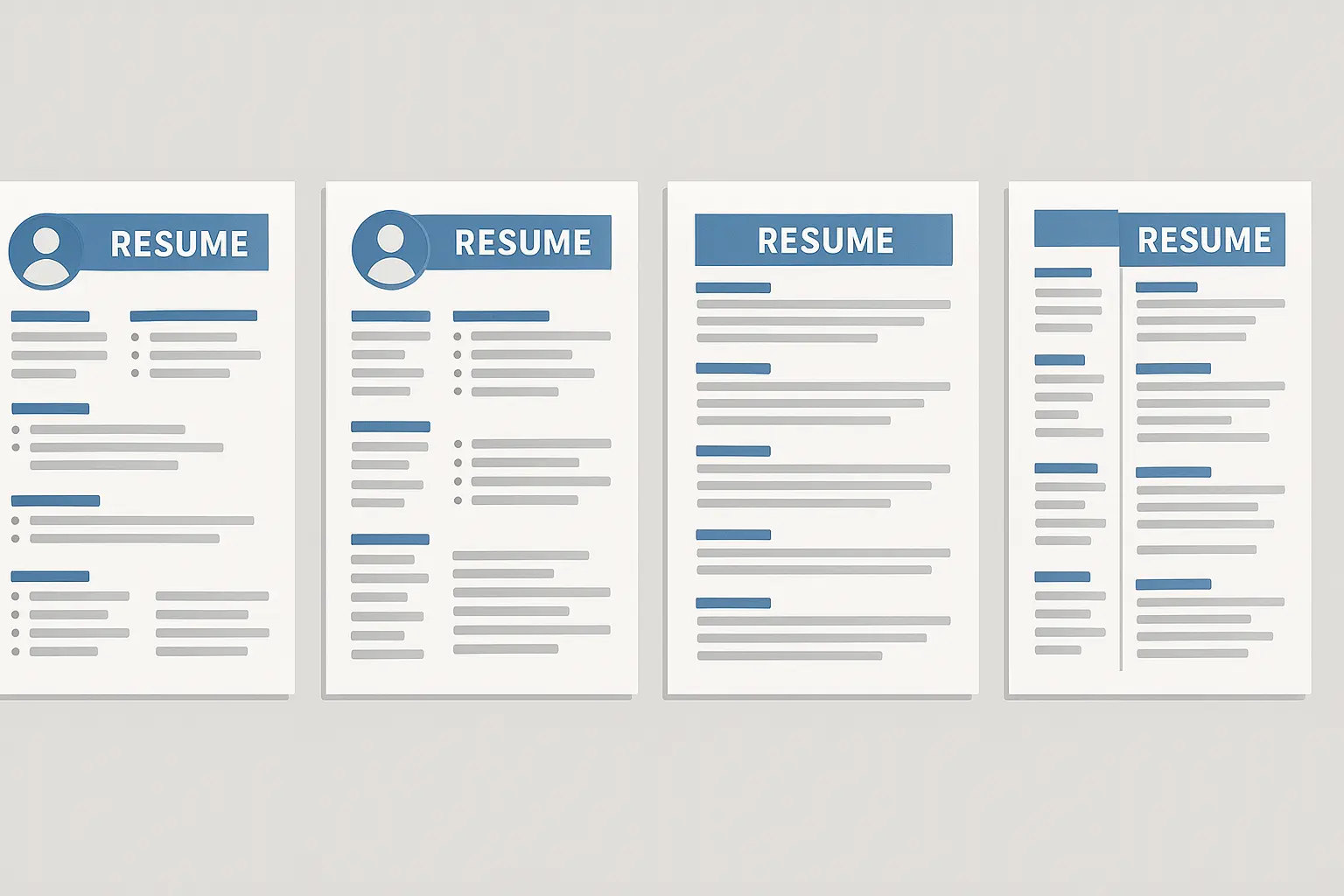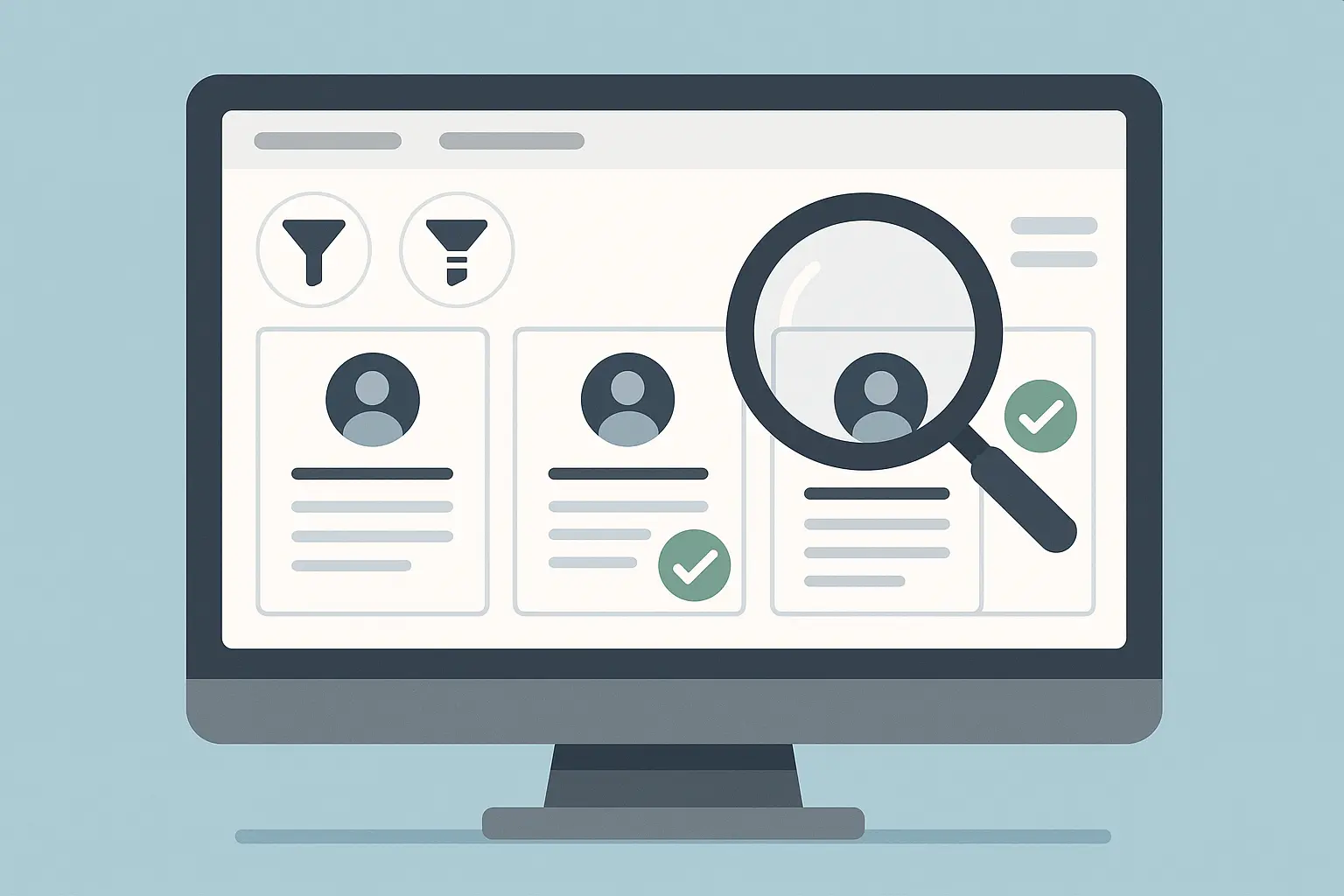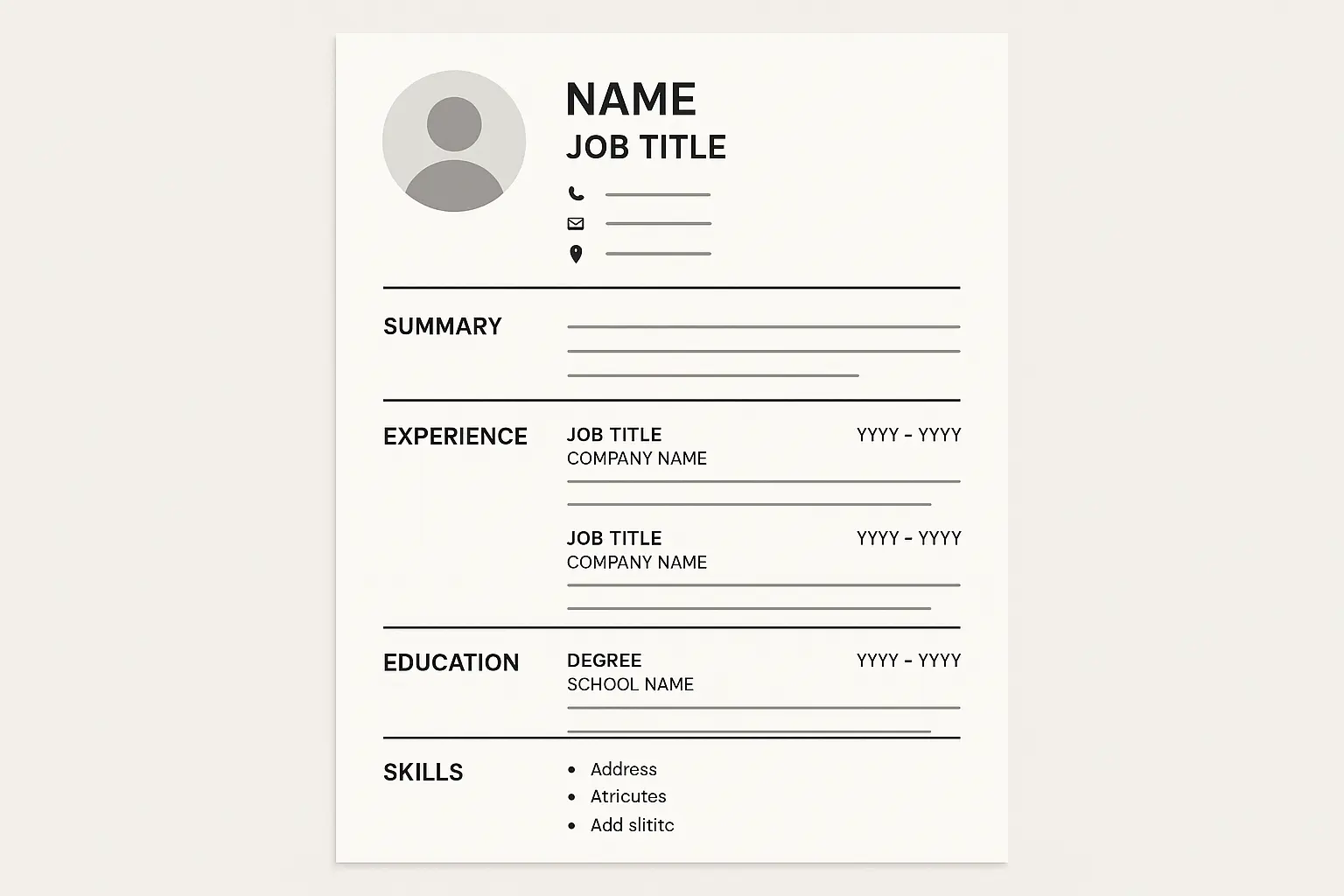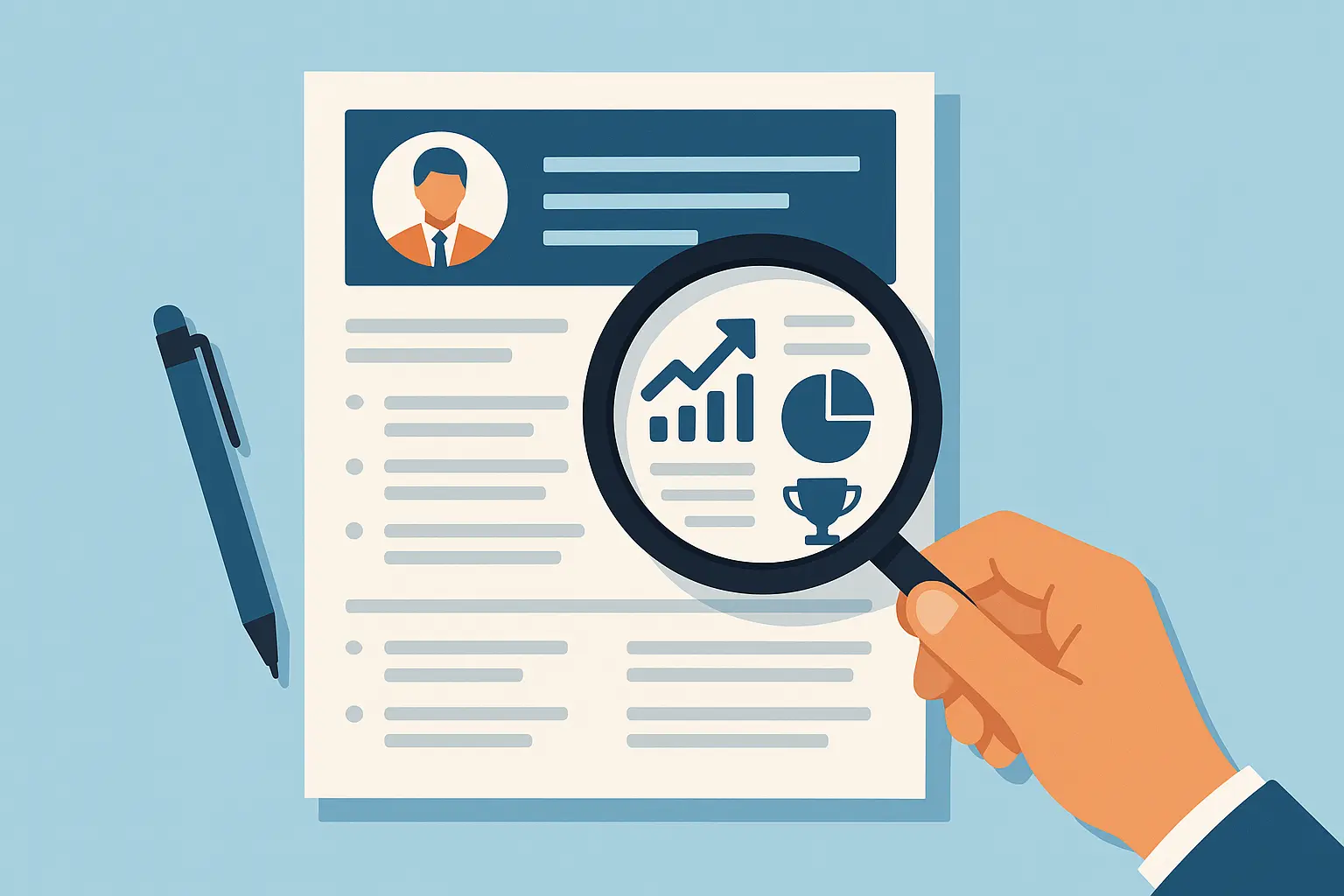How to Write a Sales Resume That Actually Gets You Hired

Last week, I watched a friend with 10 years of sales experience get rejected for a role she was perfect for. Her crime? A resume that read like a robot wrote it.
Here’s the thing about sales resumes: they’re not just documents—they’re your first sales pitch. And if you can’t sell yourself on paper, why would anyone trust you to sell their product?
I’ve been helping salespeople land jobs for over a decade, and I’ve seen the same mistakes over and over. The good news? Once you know what hiring managers actually look for, creating a standout resume isn’t that hard.

Table of Contents
-
What Really Matters on Your Sales Resume
-
The Skills That Actually Get You Hired
-
Real Examples That Work
-
Getting Past the Robots (ATS Systems)
-
Industry-Specific Tweaks
-
Advanced Moves That Work
-
Common Mistakes That Kill Your Chances
-
Final Thoughts
TL;DR
-
Focus on numbers that prove your impact, not buzzword lists
-
Use the exact keywords from job postings to get past ATS systems
-
Tell specific stories instead of making generic claims
-
Tailor your approach for different industries and experience levels
-
Keep it simple—clean format, one page, no fancy graphics
-
Research target companies and weave their language into your resume
-
Proofread everything twice (typos kill deals and applications)
Why Your Resume Matters More Than Ever
The hiring landscape is brutal right now. According to Sales Talent Inc, the average job gets 180 applicants. That means recruiters are looking for reasons to say no, not yes.
Most resumes get filtered out by applicant tracking systems before human eyes ever see them. Understanding ATS-friendly resume secrets isn’t optional anymore—it’s survival.
But here’s what’s really happening: hiring managers spend less than 6 seconds scanning your resume before deciding whether to keep reading or move on. Six seconds. That’s barely enough time to read your name and job title.
Your resume has one job: get you the interview. Once you’re in the room, your sales skills take over. But if your resume doesn’t open that door, none of your charm or experience matters.
What Really Matters on Your Sales Resume
Forget everything you’ve heard about listing every skill under the sun. Hiring managers care about one thing: Can you make us money?
Your resume needs to answer that question in the first 10 seconds. Here’s how:
Show Your Numbers (The Right Way)
Numbers tell your story better than words ever could. But not all numbers are created equal.
Instead of: “Strong sales performance”
Write: “Increased territory revenue by 35% in 18 months”
The difference? One makes a claim, the other proves it.
Here’s what actually impresses hiring managers:
|
What They Want to See |
Why It Matters |
Example |
|---|---|---|
|
Revenue growth |
Shows you can make money |
“Generated $2.3M in new business over 12 months” |
|
Quota achievement |
Proves consistency |
“Exceeded quota 8 out of 10 quarters” |
|
Deal size |
Indicates complexity |
“Closed average deal size of $150K” |
|
Conversion rates |
Shows efficiency |
“Converted 35% of qualified leads to sales” |
|
Territory growth |
Demonstrates expansion |
“Grew territory from $800K to $1.2M annually” |
Tell Stories, Not Lists
Don’t just say you’re good at relationship building. Show it:
“Turned a frustrated client into our biggest advocate—they referred $200K in new business over six months.”
This approach works because it demonstrates problem-solving in action. Every hiring manager has dealt with difficult clients. When you show how you handled yours, they can imagine you handling theirs.
The Skills That Actually Get You Hired
Not all sales skills carry the same weight. Some are table stakes, others are differentiators. Smart job seekers know the difference.
Core Skills Every Sales Resume Needs:
-
Prospecting and lead generation
-
Closing techniques and negotiation
-
Pipeline management and forecasting
-
CRM proficiency (Salesforce, HubSpot, etc.)
-
Consultative selling approach
Advanced Skills That Set You Apart:
-
Solution selling methodology
-
C-suite relationship building
-
Complex deal management
-
Cross-selling and upselling
-
Team leadership and mentoring
The key is showing how you’ve applied these skills to drive results. Consider incorporating both hard skills and soft skills strategically throughout your resume to demonstrate comprehensive professional capabilities.
Tech Skills for Modern Sales
Sales has gone digital, and your resume needs to reflect that reality. The integration of AI in sales hiring is revolutionizing the industry. According to Entrepreneur, companies using AI-powered hiring processes for sales roles have saved over 1,500 collective hours in just three months, with candidates rating the AI assessment experience 4.3 out of 5 for fairness and 4.5 out of 5 for job relevance.
Essential tech skills include:
-
CRM systems (be specific about which ones)
-
Sales automation tools
-
Video conferencing platforms
-
Social selling techniques
-
Data analysis and reporting
Don’t just list these—show how you used them: “Leveraged Salesforce automation to increase daily prospecting calls by 40% while maintaining personalization.”
Real Examples That Work
Here are three real resumes that got people hired (names changed, obviously):
Sarah – Entry Level Sales
Before: “Responsible for customer service and sales activities”
After: “Converted 40% of customer service calls into upsell opportunities, adding $15K monthly revenue”
See the difference? Same job, but now it sounds like she’s a revenue generator, not just someone answering phones.
Mike – Account Executive
Before: Listed 15 different skills in a bullet-point graveyard
After: “Grew existing accounts by average of 60% year-over-year by identifying expansion opportunities and building C-suite relationships”
One sentence tells his whole story better than a page of buzzwords.
Lisa – Sales Manager
Before: “Managed a team of sales representatives”
After: “Led 8-person team to 120% of quota for three consecutive quarters while reducing turnover by 50%”
Now that’s management with impact.
Modern resume best practices emphasize concise, tailored, and results-driven content optimized for both human readers and applicant tracking systems. According to Cape Cod Times, today’s competitive job market requires compelling summaries, skills sections with relevant keywords, and work experience that shows quantifiable impact using methods such as STAR (Situation, Task, Action, Result).
Different Approaches for Different Experience Levels
|
Experience Level |
Key Focus Areas |
Essential Metrics to Highlight |
|---|---|---|
|
Entry Level (0-2 years) |
Learning agility, basic metrics, growth potential |
Call volume, conversion rates, customer satisfaction |
|
Mid Level (3-7 years) |
Quota achievement, account growth, pipeline management |
Revenue generated, quota percentage, account retention |
|
Senior Level (8+ years) |
Strategic selling, team leadership, enterprise deals |
Territory growth, team performance, deal complexity |
Your approach should match your experience level while demonstrating readiness for the next stage.
Getting Past the Robots (ATS Systems)
Real talk about ATS systems: they’re not trying to reject you. They’re just looking for basic proof that you can do the job.
Think of it like this: if a job posting mentions “CRM experience” five times, and you never mention CRM once, the system flags that as a mismatch. It’s not personal—it’s just math.
Understanding proper ATS resume formatting ensures your achievements successfully navigate applicant tracking systems before reaching hiring managers.
The Fix Is Simple
-
Read the job posting like your life depends on it
-
Use their exact words (not synonyms)
-
Don’t keyword-stuff—just be natural about it
I once helped a rep who kept getting auto-rejected. Turns out, he was writing “customer relationship management” while every job posting said “CRM.” One word change, and suddenly he was getting calls.
Keywords That Actually Matter
Research the specific terms your target industry uses and incorporate them naturally throughout your resume. Create a master list of relevant keywords from job descriptions and weave them into your experience descriptions.
Templates That Don’t Suck
Most resume templates are either boring or trying too hard. You want something clean that lets your achievements shine. Think Apple store, not Times Square billboard.
Skip anything with:
-
Weird fonts or colors
-
Multiple columns (ATS systems hate these)
-
Graphics or charts
-
Creative layouts
Stick with simple, single-column formats. Trust me, your personality should come through in your words, not your design choices. Selecting and customizing the right professional resume format creates the foundation for effectively showcasing your sales achievements.
Industry-Specific Tweaks
Different industries speak different languages. Your resume needs to match their dialect.
B2B Software Sales: Focus on deal size, sales cycle length, and technical complexity
-
“Closed $2M in enterprise deals with 18-month average sales cycle”
Retail/Consumer: Emphasize volume, efficiency, and customer satisfaction
-
“Processed 100+ customer interactions daily while maintaining 95% satisfaction score”
Real Estate: Highlight market knowledge and relationship building
-
“Built referral network generating 60% of annual business volume”
Technical Sales: Balance relationship skills with technical expertise
-
“Leveraged deep technical knowledge in pharmaceutical sales to educate healthcare providers on complex drug mechanisms, resulting in $800,000 annual sales and 20% quarterly quota achievement”
The key is speaking their language. A tech company wants to hear about “solutions” and “platforms.” A retail chain cares about “conversion rates” and “customer experience.”
Advanced Moves That Work
The Research Trick
Before applying anywhere, spend 20 minutes on their website and LinkedIn. Look for:
-
Their sales methodology (Challenger? SPIN? Something custom?)
-
Company values and culture
-
Recent news or product launches
Then weave this into your resume. If they’re big on “consultative selling,” make sure that phrase appears naturally in your experience.
For sales professionals seeking specialized assistance, exploring top sales resume builders can provide industry-specific templates and optimization features tailored to your career goals.
The Metric Mix
Don’t just use percentages or dollar amounts—use both:
“Exceeded quota by 25% ($500K over target) for six straight quarters”
This works because different people process information differently. Some hiring managers think in percentages, others in dollars.
The Problem-Solution Format
Instead of just listing achievements, show the challenge you solved:
“Inherited underperforming territory (60% of quota previous year) → Implemented new prospecting strategy → Achieved 115% of quota within 12 months”
This format shows you’re a problem-solver, not just someone who got lucky with good leads.
Using AI Tools Smartly
AI tools can help optimize your resume content and suggest improvements, but use them as assistants, not replacements for your judgment. These tools excel at:
-
Analyzing job descriptions for keywords
-
Suggesting stronger action verbs
-
Checking ATS compatibility
-
Providing content ideas based on your experience
Always review and customize AI suggestions to maintain authenticity and ensure they accurately represent your experience.
Common Mistakes That Kill Your Chances
The Laundry List: Listing every software you’ve ever touched. Nobody cares if you know PowerPoint.
The Humble Brag: “Fortunate to exceed quota…” You weren’t fortunate—you were good at your job.
The Generic Summary: “Results-driven sales professional…” could describe anyone. Be specific about YOUR results.
The Skill Soup: Having a “Skills” section with 20+ items. Pick 6-8 that matter most for the specific role.
The Typo Terror: One spelling mistake can end your chances. Get someone else to proofread—you’re too close to your own writing to catch everything.
The Format Failure: Using templates with graphics, multiple columns, or unusual fonts that ATS systems can’t read properly.
The Reality Check
Here’s something most career coaches won’t tell you: your resume alone won’t get you the job. But a bad resume will definitely cost you opportunities.
According to Salesforce, recruiters spend less than 6 seconds scanning a resume before making a “GO / NO GO” decision, making the strategic presentation of quantified achievements absolutely critical for capturing immediate attention.
Research from Resume Builder indicates that sales occupations are expected to experience no change in growth between 2021 and 2031, with a decrease of over 164,500 jobs over the next decade, making the sales industry highly competitive and requiring carefully aligned resumes.
Your goal isn’t to get hired from your resume—it’s to get the interview. Once you’re in the room (or on the video call), your sales skills take over.
Think of your resume as the appetizer, not the main course. It should leave them hungry for more, not completely satisfied.
Final Thoughts
Building a great sales resume isn’t rocket science, but it does require thinking like a salesperson. You’re solving a problem (they need someone who can sell) with a solution (your track record of success).
Keep it simple, keep it honest, and keep it focused on what matters: your ability to generate results.
And remember—if you can’t sell yourself effectively on paper, hiring managers will wonder if you can sell their product effectively to customers. Make your resume your best sales tool.
Resume Builder IQ addresses these challenges with AI-powered optimization that suggests industry-specific sales skills based on your target role. Our platform’s intelligent system transforms basic skills into quantified statements that demonstrate real impact, while our ATS-friendly templates ensure your achievements reach human reviewers. Whether you’re targeting B2B software sales or retail management, our tailored guidance speaks directly to your industry’s requirements, helping you create a polished resume in minutes rather than hours.
Sales Resume Optimization Checklist:
✓ Numbers that prove your impact
✓ Industry keywords from the job posting
✓ Clean, ATS-friendly format
✓ Specific examples, not generic claims
✓ Proofread by someone else
✓ Tailored to each application
✓ One page (unless you’re very senior)
✓ Contact info that actually works
✓ Action verbs to start bullet points
✓ Career progression and growth over time
Essential Sales Skills Template:
-
Core Competencies: Prospecting, Lead Generation, Closing Techniques, Negotiation
-
Communication Skills: Consultative Selling, Presentation Skills , Active Listening
-
Technical Proficiency: CRM Systems (Salesforce, HubSpot), Sales Analytics, Email Marketing
-
Industry Knowledge: Market Analysis, Competitor Research, Product Expertise
-
Soft Skills: Relationship Building, Time Management, Adaptability
Now stop overthinking it and start applying. The best resume is the one that gets you in front of hiring managers, not the one that sits on your computer getting “perfected” for another month.
The sales job market continues evolving, with new technologies and methodologies constantly emerging. Stay current with industry trends, continuously update your skills, and regularly refresh your resume to reflect your growing expertise. Your investment in crafting a compelling sales resume pays dividends throughout your career, opening doors to opportunities that might otherwise remain closed.
